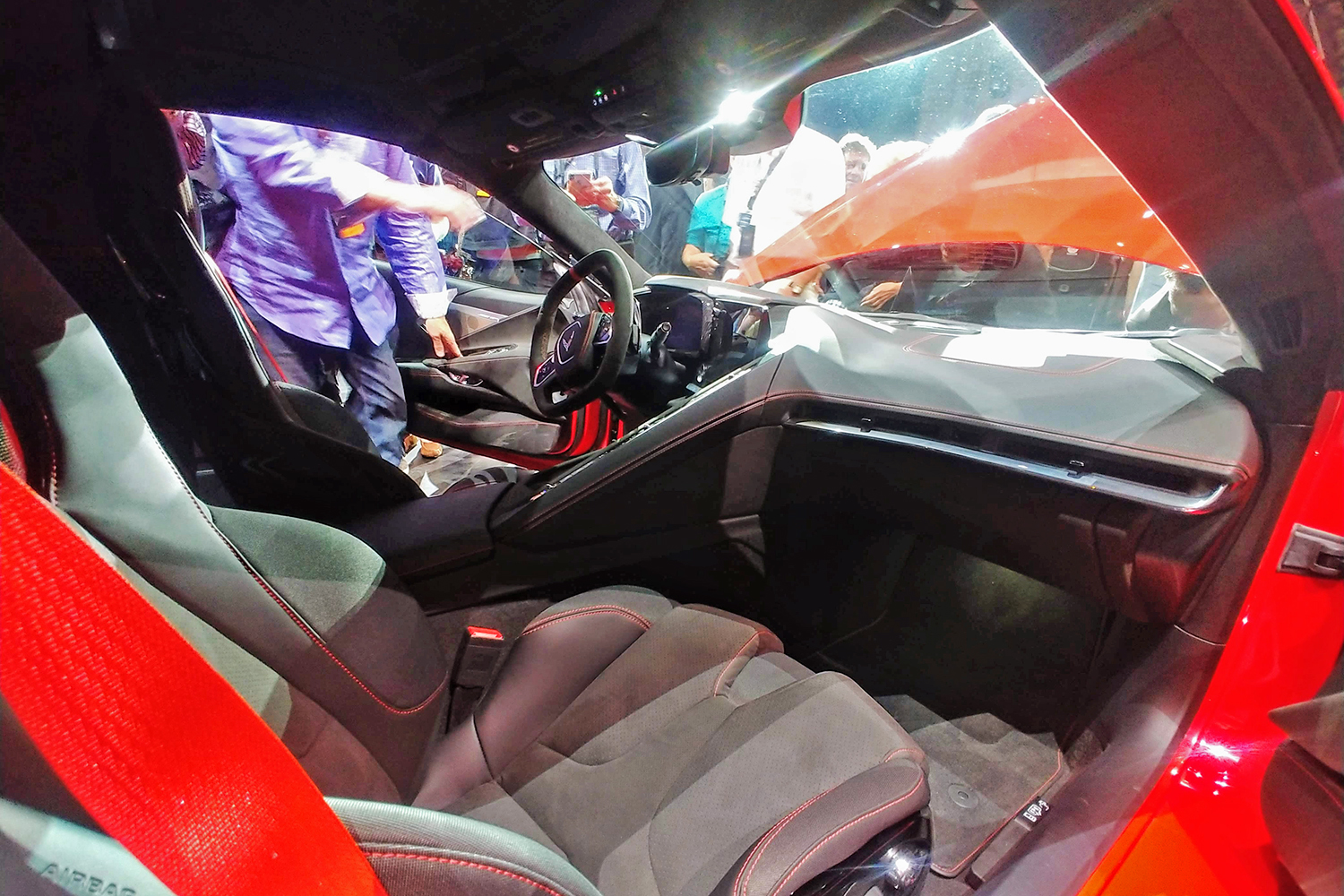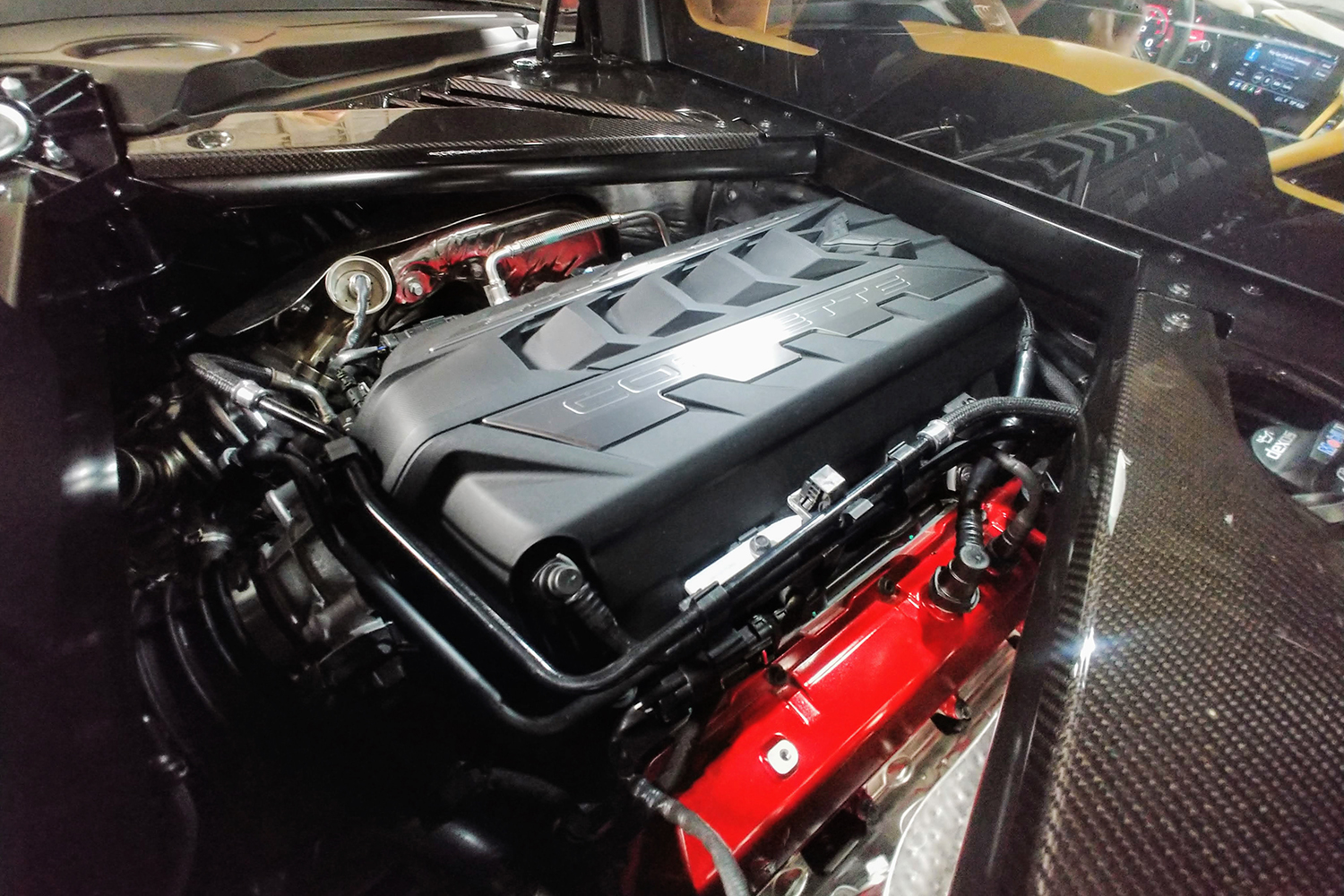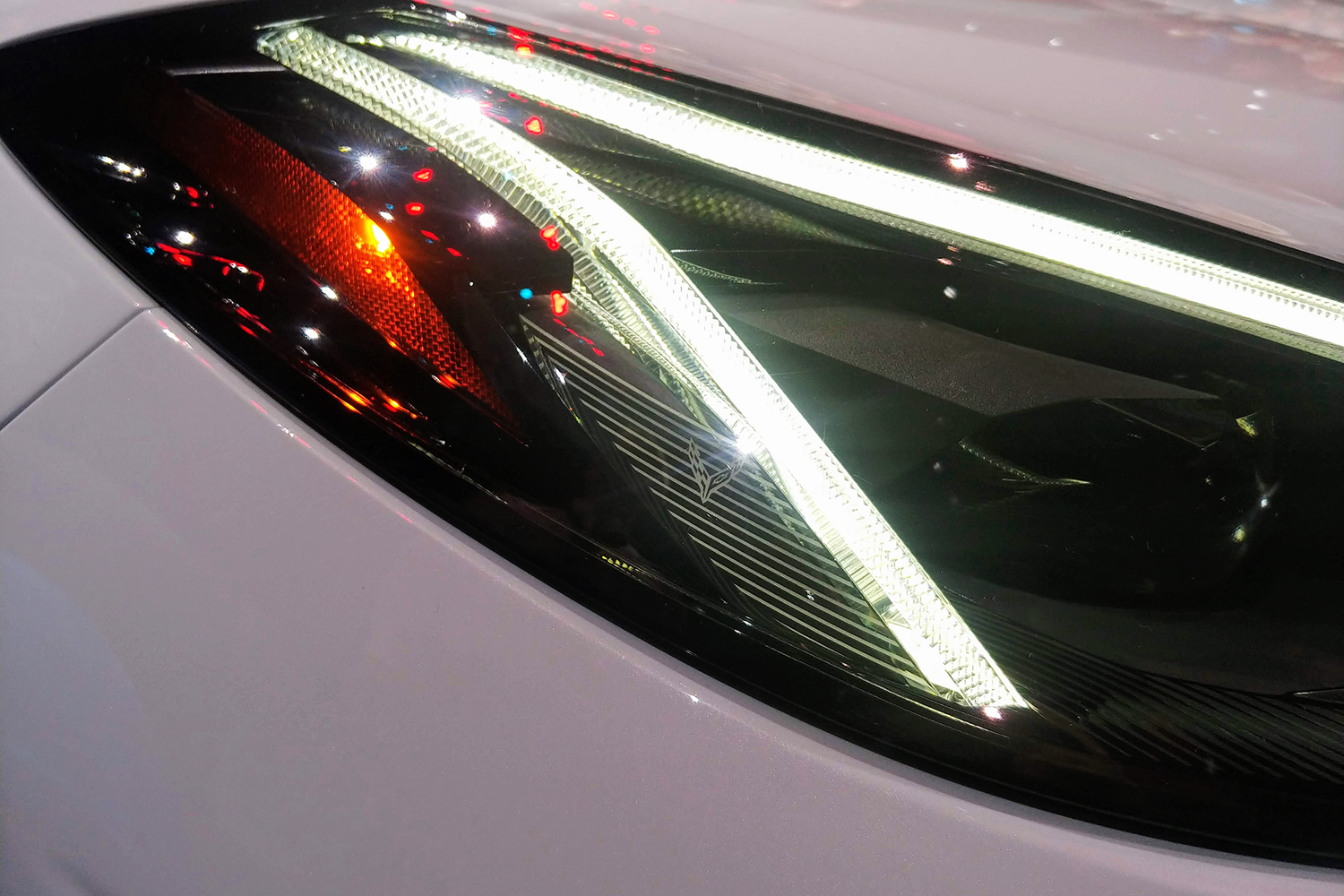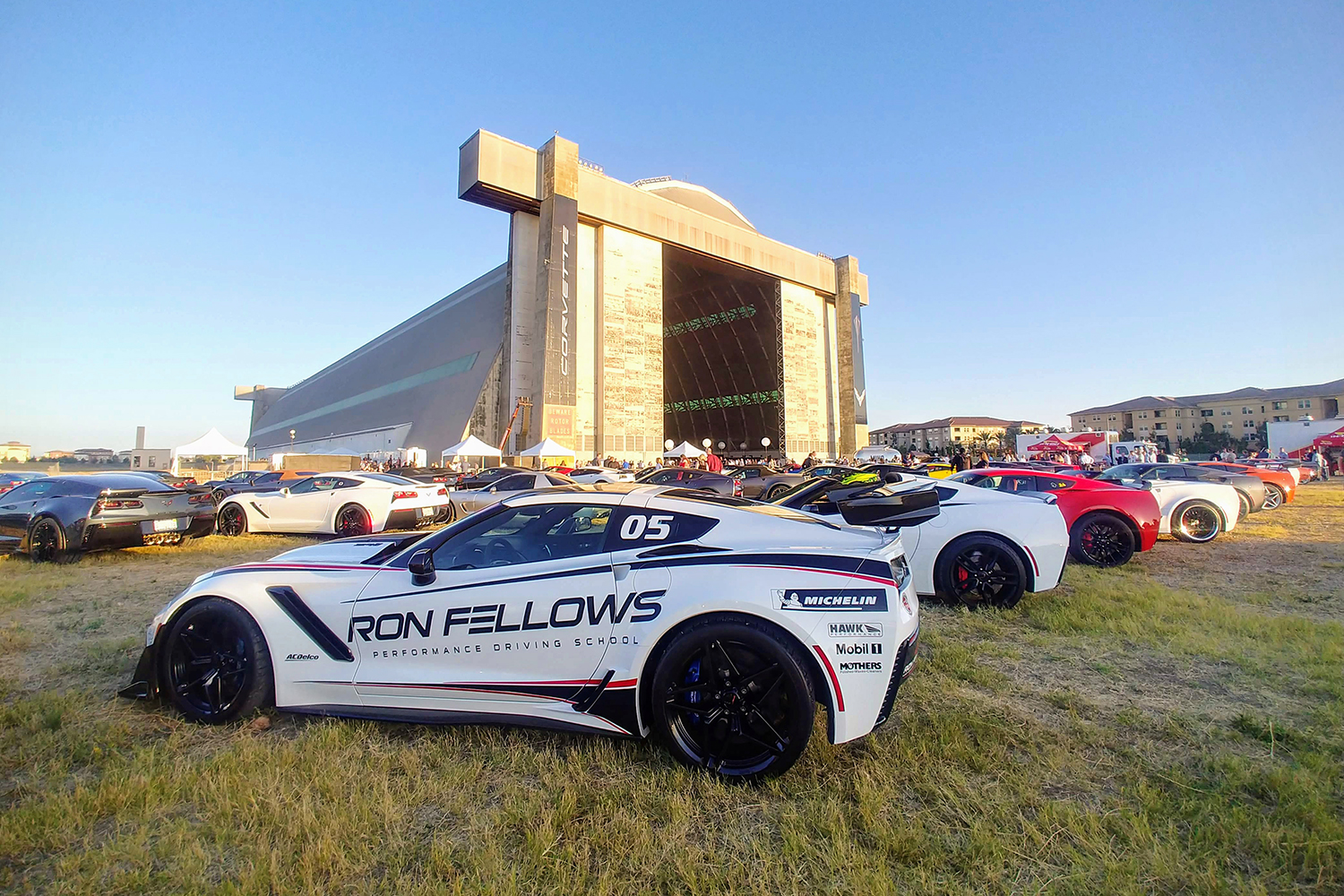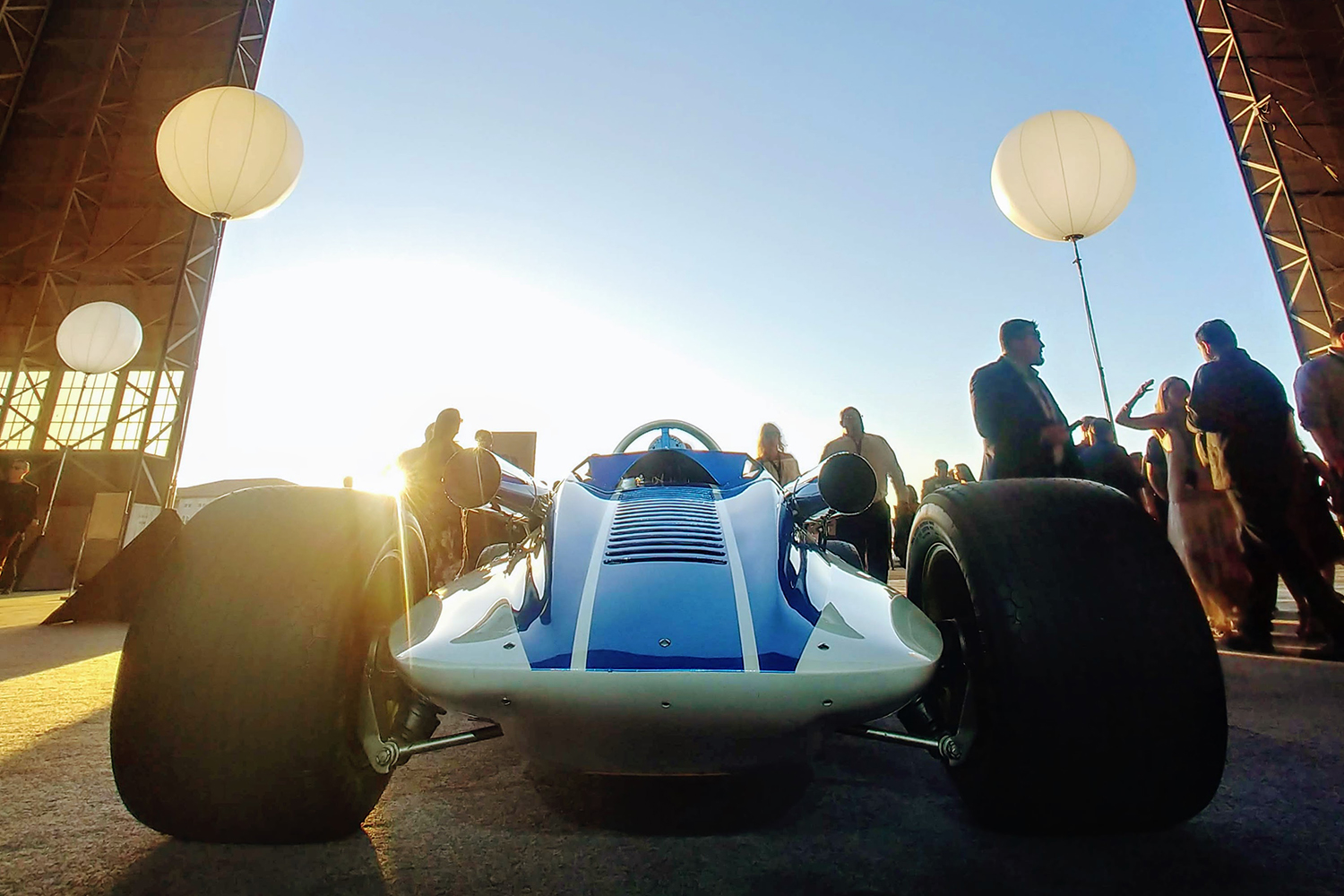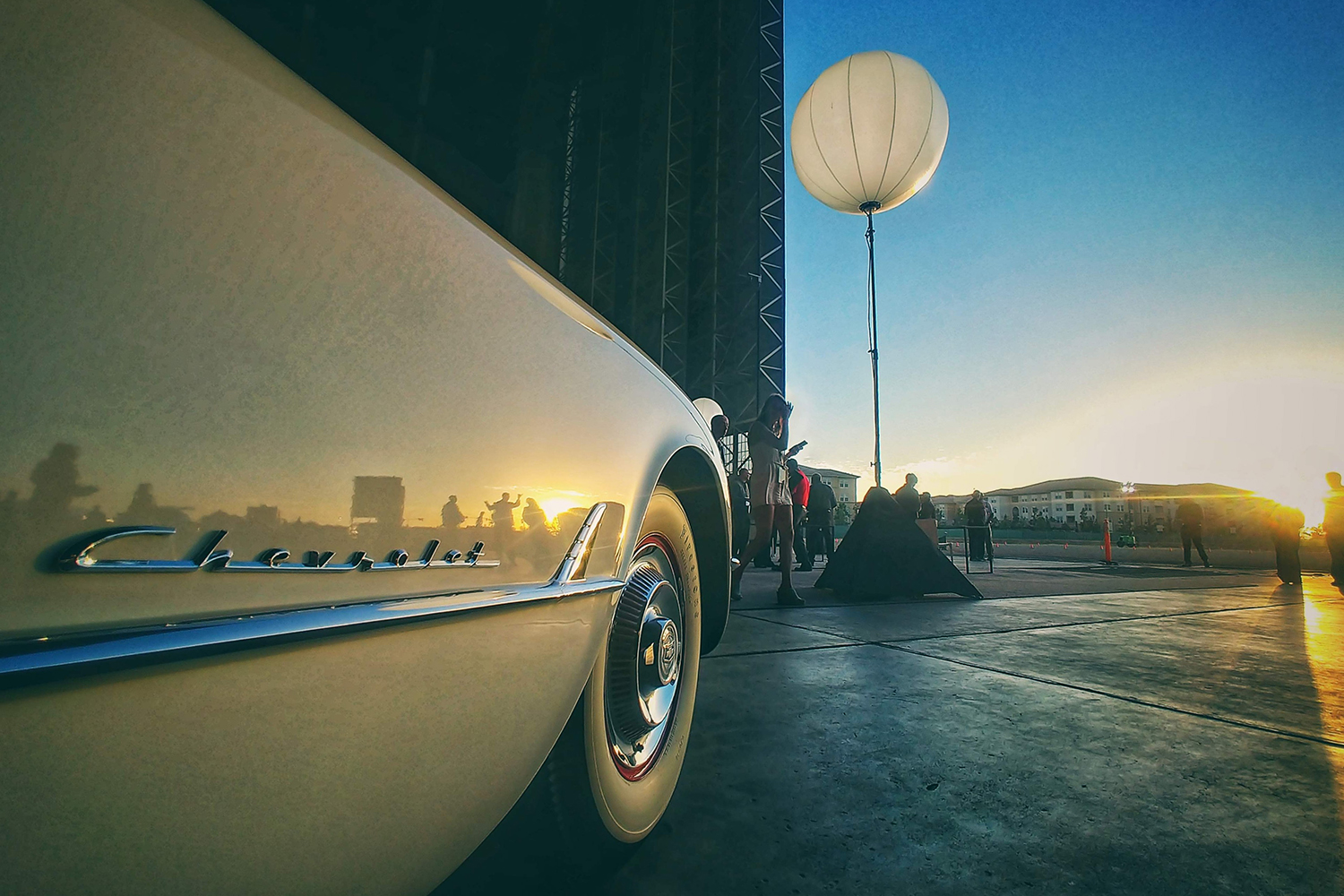For many, the Corvette will always be the quintessential American sports car. Chevy has sold more than 1.7 million since the car’s debut in 1953, and it’s evolved far beyond what anyone thought possible in the ensuing decades. But, fans have long clamored for the layout that legendary Chevrolet designer Zora Arkus-Duntov envisioned for the Corvette more than 50 years ago. Now, the elusive mid-engine design is finally here, and it promises to be a game-changer — for under $60,000.
At this month’s massive reveal at a blimp hangar in Tustin, California, Chevy dropped a bombshell. After decades of steady evolution, its 2020 Corvette Stingray (known colloquially as “C8”) will be an entirely different animal. Chevy carried over only a single part from the previous C7 generation design. The canopy-forward body is sharper, more angular, more reminiscent of modern fighter jet design. It’s bold, aggressive, and vaguely European, yet undeniably Corvette.

More importantly, the engine now sits behind the passenger compartment, proudly displayed under a wide glass deck lid. That move, coupled with a 50% stiffer chassis translates to better weight distribution with a rear weight bias that bolsters straight-line acceleration and better track performance.
Further Reading
- A Brief History of the Chevrolet Corvette, America’s Most Iconic Sports Car
- What It’s Like to Drive the 755-Horsepower Corvette ZR
- The Absolute Best Muscle Cars of All Time
By positioning the driver closer to the front axle and wheels, they instantly feel more in control. GM’s President and Chevy’s lead designers were quick to point out that they had reached the limits of what was possible in the previous C7 front-engine/rear-wheel-drive layout. They were quite literally at the performance ceiling of that configuration. Mid-engine was the next logical step — a fact that Arkus-Duntov knew for decades. This marks a sea change in Corvette’s future, a change that will elate even hardcore ‘Vette enthusiasts.
The C8’s LT2 powerplant is a new 6.2-liter, naturally aspirated, Small Block V8 derived in small part from its LT1 predecessor. When equipped with performance exhaust, power jumps from the previous generation’s 460 horsepower to 495 horsepower in the entry-level C8 trim. All that power will be pushed through the rear wheels and wrangled through a new eight-speed, dual-clutch automatic. Chevy’s taking a strong stand as it waves goodbye to even an optional manual transmission, although enthusiasts can still rely on steering-wheel-mounted paddle shifters.
All this retooling promises awe-inspiring numbers. Chevy hasn’t confirmed hard performance figures, including the new model’s top speed or quarter-mile times. However, the one that received raucous applause at this month’s event — the one that ‘Vette owners can use to brag to their supercar-owning friends — is “less than three seconds.” The base 2020 Corvette Stingray races from 0-60 in under three seconds when equipped with the Z51 Performance Package. For Corvette fans keeping score, that’s as fast as the latest generation ZR1 — the most potent, factory-built Vette ever.
The base 2020 Corvette Stingray races from 0-60 in under three seconds when equipped with the Z51 Performance Package.
From sports cars to supercars to hypercars, there are plenty of high performance rides on the market. Bugatti, Koenigsegg, and even Lotus are building or plan to build hypercars putting down sub-three-second 0-60 times. What none of those can offer, however, is the value of a Corvette. While the world’s elite automakers are busy marketing exclusive rides with million-dollar-plus price tags, Chevy is announcing a veritable supercar for the Everyman. It’s hardly a surprise considering the ‘Vette has always bested its competitors on price. They’ve never been “cheap” by most standards, but even a well-equipped C7 can be had for under $100,000 — a fraction of its competition with equivalent or better performance. At this month’s reveal, Chevy confirmed the entry-level 2020 Corvette Stingray will base at less than $60,000. Let that number sink in because it’s almost literally unbelievable. That translates to damn-near
Until now, that value often meant compromising on non-essential parts. Chevy designers cut costs by, let’s be honest, cheaping out on the interior. For decades, owners harped on the dull plastics and generic look of the interior. Most were willing to sacrifice those niceties for racecar-like performance. No more. For 2020, the ‘Vette’s cockpit receives a top-down refresh. Immediately in front of the driver is a small, squared-off, twin-spoke steering wheel designed to maximize views of the reconfigurable instrument cluster. A beefy divider bisects the cabin with a long, narrow track of physical buttons to control the car’s most frequently accessed comfort and convenience functions. It’s a bold and polarizing interior design feature, but many will see its utility compared to wading through a sea of touchscreen menus to, for example, tweak the volume or climate control.
Fit and finish has been significantly improved throughout with more leather wrapping and liberal use of real metals like stainless steel speaker grilles and tasteful aluminum accents. Plus, carbon fiber trim is available on the console, door plates, and upgraded seats. What’s more, with 12.6 cubic feet of cargo volume between the new “frunk” (front trunk) and rear trunk, it promises to be more practical as a daily driver.
Production of the 2020 Corvette Stingray will commence later this year with the first models rolling off the assembly line in Bowling Green, Kentucky in early 2020. Hopeful owners should get in line to build and reserve theirs now. Even before confirming the final options and pricing, Chevy recently announced the coming model year is already almost sold out.



